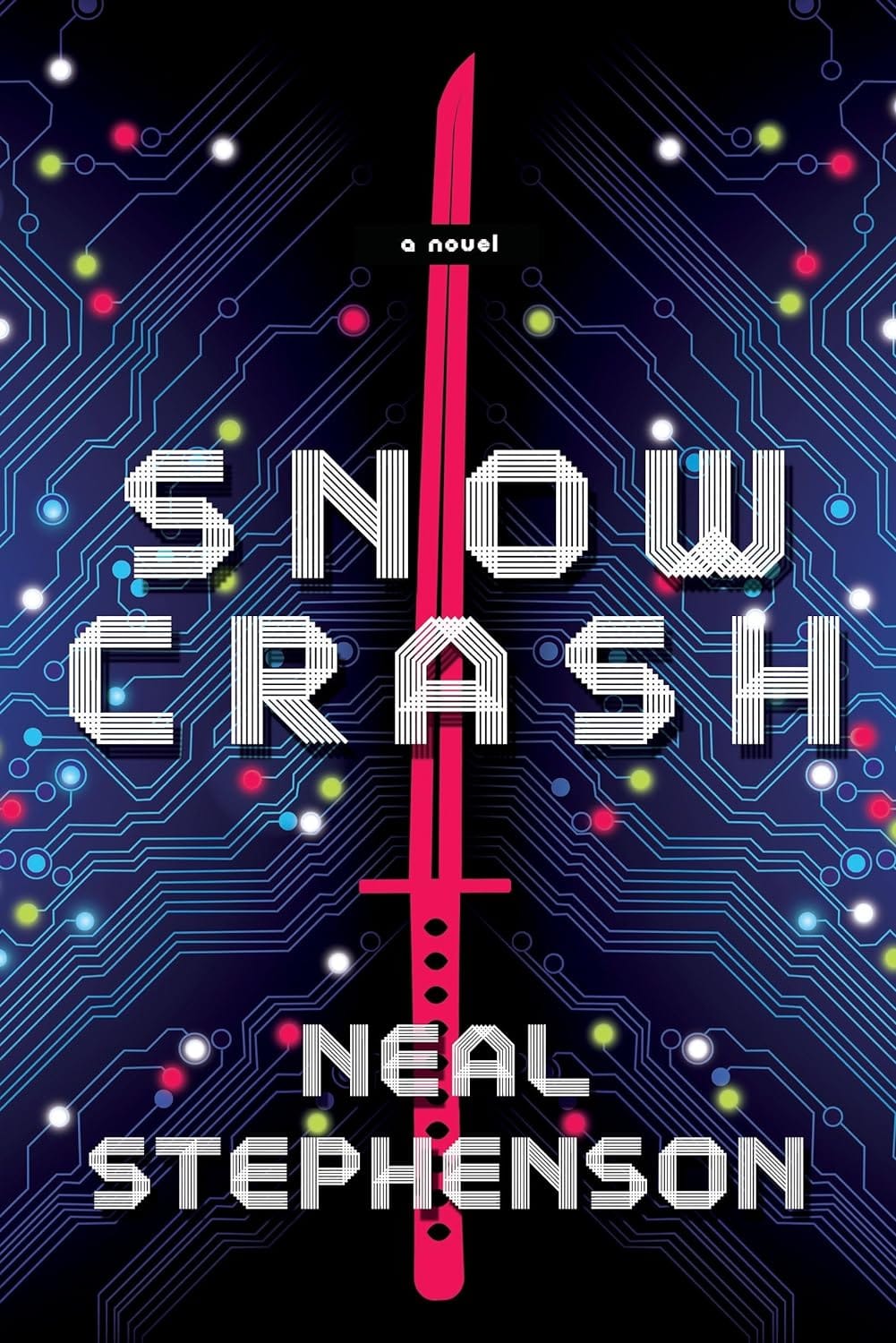Signal & Noise

I believe every little bit of information we consume changes our minds, however subtly.
This feels obviously true, just as every bit of food we eat ever so slightly changes our body.
Yet, people are even more careless about the information they consume than the food.
When I read Neal Stephenson's "Snow Crash" in 1998 it felt like a crystal clear look into the future. In more ways than one it feels like Stephenson correctly predicted many aspects of our modern world in his cyberpunk novel from 1992 (though, as an influential book, it's certainly the case that life can imitate art).

In the book "Snow Crash" refers to both a drug and a computer virus, capable of hacking the human brain through visual and linguistic triggers. It’s striking how Stephenson's dystopian vision mirrors our reality today with internet content landscape.
In the book users of the "Metaverse," a virtual reality world, are susceptible to a visual binary code that can crash their systems and cause seizures in real life.
Same same but different: Today’s social media platforms and internet content are designed to capture and hold our attention using sophisticated algorithms. These algorithms curate content to elicit strong emotional responses, effectively hacking our brains by exploiting our psychological vulnerabilities. The endless scroll, notifications, and tailored feeds keep users engaged, often at the expense of their mental well-being.
20 years after reading Snow Crash I found myself working inside of Twitter monitoring the outcome of changes our team had shipped on the social media site.
An experiment engine and dashboard called DuckDuckGo (DDG) helped us automatically setup, manage, and report on experiments to see what the impact would be on a feature change. Would a new feature or tweak cause people to post, scroll, reply, stay on Twitter, click ads more – or less? The goal of course was to increase engagement and ad clicks.
This was an optimization engine designed to give people what they want - or at least what part of their brains want.
Most of the internet you use now has been designed by exceptionally clever people to hold and direct your attention. Much has been written about this, and I'm not here to moralize on that topic today. Rather, I want to discuss how to best navigate this information landscape that is so radically unlike anything our brains evolved to contend with.
A friend recently asked me to write about how I separate signal from noise and decide what to consume. The world is so full of information flying at us every day it seems quite tricky to figure out what to pay attention to. A lot of noise has been specifically crafted to make it more palatable.
What is signal; What is noise?
Signal is information that is somehow going to be helpful to us: Enrich our lives, help us make better decisions. Noise is just distraction or, worse, information that is false, misleading, or somehow troublesome.
After thinking this over I've come to the conclusion that this dichotomy between signal and noise is not quite the right mental model. There is more ambiguity and subtleness to the classification of information.
For all the information out there that you could consume one of the following is true:
- A) Valuable
- B) Not valuable immediately but becomes valuable later
- C) Valuable but not for you
- D) Junk
The tricky part is that there is Value and Junk in books, social media posts, podcasts, 1:1 conversations, and almost all other content formats. You can't simply tune out based upon format. You need a more nuanced approach towards avoiding junk, consuming value, and allowing all the information you've found to integrate into something useful
Avoiding junk
In much more than nine cases out of ten the only objectively truthful criticism would be "This book is worthless ..." - George Orwell
The first and most actionable rule of managing signal and noise is to do your best to avoid junk content. There is so much junk out there that there's even an adage, Sturgeon's law, that states that 90% of everything is junk.
Rules for avoiding junk:
- Be selective about the sources you allow to refer information or people to you
- Don't be shy to quit a book, podcast, or article if it seems low quality
Being selective about the source of the information you consume is a very powerful way to filter. It is also the most quintessentially human way to make a quality differentiation. As Joseph Henrich discusses in The Secret of our Success our ability to monitor what other people are doing, discern who is worth learning from, and pick up information from them is what has made us the dominant animal on the planet. One might say this technique he refers to as social is the secret of our success.
I keep a running list of things to read, listen to, or watch that I find embedded in content that's already met or exceeded my expectations. This recursive process creates never ending learning.
Quitting early and often is the best way to recoup more time to high quality content. It also makes you less reticent to start new material. This is a key still for enabling breadth - which in turn improves your chances at focusing on high quality depth.
Combining these two techniques where you pick up information from interesting and credible sources, try lots of things, discard what doesn't resonate turns one into a perpetually curious learning machine.
It's not always possible to tell which bucket across A), B), C) and D) from above content falls into before starting to consume it. While a cursory look at the content, the source, or the referrer of the content might help you sort out what's A) Valuable vs D) Junk it's not going to be so easy to tell B) and C) apart: Where high quality content is not immediately valuable to you, or it's high quality but not relevant.
One of the first video games I remember loving as a kid was the 1995 Blizzard game Warcraft II: Tides of Darkness. In strategy game you control an economy and army of either humans or orcs - and what you can see is determined by the positioning of your units. Everything outside the sight of your units is covered in a "Fog of war"

Since playing that game as a kid I've always thought the fog of war was a good metaphor or thinking about what you don't know because you've yet to explore it.
As you wander about the world exploring how things work and consuming information the fog of war is peeled back. You can now have a sense of where else you can dig for more information.
The truth is you'll need to read widely, and then selectively go deep.
Read widely; deepen selectively
First - there is a difference between reading widely to understand the world - and diving deep to figure out a specific topic. Both are essential.

Consuming a broad array of content scanning for areas worth going deep on, sometimes diving in
If you never go deep you'll lack the level of understanding required to be successful in any important field - and you'll never satisfy the more substantial curiosity we all have about topics that entice us.
If you only go deep on specific topics you'll fail to benefit from the propagation of ideas across disciplines and you'll reduce the serendipity and luck in your life.
Late investing legend Charlie Munger was adamant about the importance of multi-disciplinary learning and thinking:
"You must know the big ideas in the big disciplines and use them routinely – all of them, not just a few. Most people are trained in one model – economics, for example – and try to solve all problems in one way. You know the old saying: 'To the man with only a hammer, every problem looks like a nail.' This is a dumb way of handling problems." - Charlie Munger
So, you have to skim along the surface of many many topics and start to look for things where you want to go deep - and then dive in. Because time is scarce - even if you dedicate a huge proportion of your time to learning - you'll need to learn heuristics to be selective.
If you consume a lot of high quality content - even if it's of varied applicability you'll have a good shot at forming connections and insights. How does this happen?
Focus and consciousness
You're aware of a lot more than you can consciously focus on.
You can only focus on one thing at a time.
There is research that shows that we can't really focus on more than one thing at a time (and therefore multitasking is more harmful than than beneficial). More compelling than the research, for me, is the experience I've been taught by meditation.
There is a technique in the introductory course for the Fitmind app called "Finger Switching" in which you try to focus on the sensation at the tips of two fingers at the same time. It's impossible.
Spending 7 minutes completing that meditation (which I've now done numerous times) will teach you more about the nature of attention and focus than any number of research papers.
Your subconscious can absorb more information than your conscious mind
You can subconsciously absorb a lot more information than you can consciously process.
If I ask you to read 10 books and then recall specific facts from those books you'll likely find this task exceptionally challenging. If I ask you to read those 10 books and then we have a conversation about topics that weave a common thread through the books you'll likely start to remember interesting information and anecdotes to share.
This dynamic typifies the sort of latent encoding of information in the brain. Put another way: Sometimes this subconscious information bubbles up to create insights.
Legendary investor George Soros was famous for predicting trouble and exiting positions when his back hurt.
Jeff Bezos talks here about using a vague sense of stress as an indicator that he's not properly taken care of something - thus using this feeling as a mechanism to focus his conscious attention.
I've found this Bezos stress indicator that I need to take action to be quite effective.
All of this points us in the direction of hoovering up high quality information with our minds - allowing it to permeate the subconscious - and allowing the subconscious to then communicate with us.
Communicating with the subconscious
At any given moment I have 15-20 earnings calls in my queue to listen to, 5 books on my bedside table, 10 audiobooks in progress, and maybe 10 podcasts I follow.
I consume a lot of content - I try to keep notes but I forget a lot. Or do I?
Even as I consume a huge array of content my conscious mind pretty much loses track of most of it. However, as that happens there are latent patterns being built in my mind. This is one reason why I think it's so important to be mindful of which content we consume: There are patterns being grooved deeper every time we read, listen, watch, or experience something.
Then, when you're working, bathing, or meditating, ideas and connections will pop into your awareness seemingly out of nowhere.
I think the trick is to expose yourself to the patterns of information over and over, and you may not see the important connection of information the first time, or the second. By the fifth exposure it may suddenly become obvious.
This is why sometimes the greatest epiphanies can happen when waking from sleep, coming out of a meditation, or during a shower.
Tom Morgan, an investor, gave a fascinating talk earlier this year at the Sohn Conference. The 5min talk argues that collectively we're underweighting the use of our right brain hemisphere - that embracing curiosity and intuition well help us better appreciate the big picture and make sense of the world.
It took me 3 months to put 10 years of research on curiosity into a 20min presentation...
— Tom Morgan (@tomowenmorgan) April 4, 2024
...So when @GrahamDuncanNYC challenged me to compress it down to 5min for the @SohnConf yesterday, I obviously went insane.
Here it is. pic.twitter.com/wlNibFnyd3
While this sort of meditative communication with various levels of consciousness sounds like the stuff of hippie outdoor festivals - it's become a common tool of the highest performers in the business world.
Brad Jacobs who has build multiple multi-billion dollar businesses and wrote the book How to Make a Few Billion Dollars writes about his daily meditation practice involving two sessions per day.
Playbook
The conclusion here is to:
- Read widely
- Dive in selectively
- Allow your subconscious to reveal the patterns to you
Thank you very much to Frederik for suggesting this topic!




